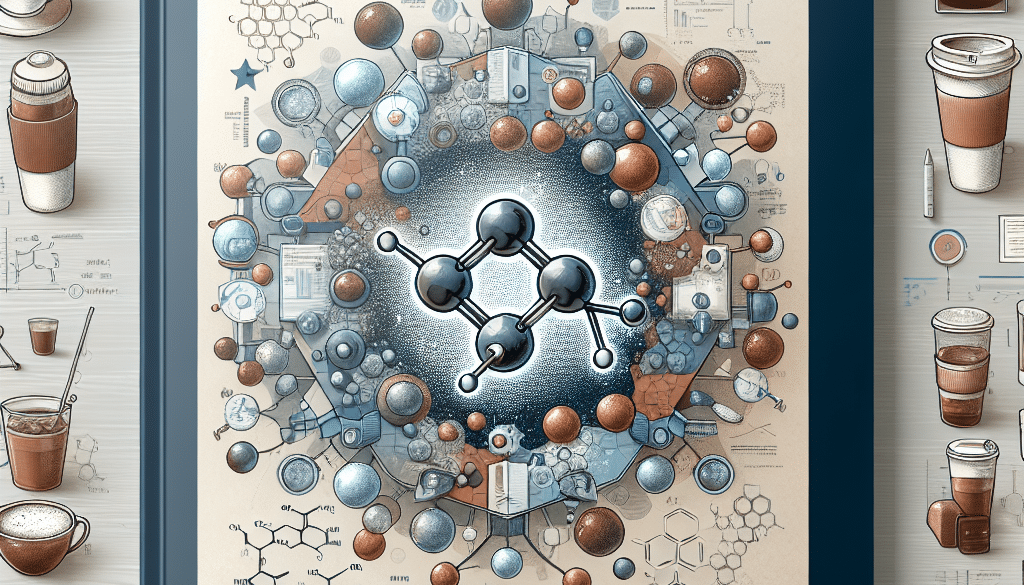Caffeine Safety: A Thorough Review
-
Table of Contents
- Caffeine Safety: A Thorough Review and Analysis
- Understanding Caffeine and Its Effects
- Positive Effects of Caffeine
- Negative Effects of Caffeine
- Recommended Intake and Safety Thresholds
- Special Considerations for Different Populations
- Potential Risks and Side Effects
- Case Studies and Statistics
- Interactions with Medications and Other Substances
- Minimizing Risks and Practicing Safe Consumption
- Conclusion: Balancing Benefits and Risks
- Enhance Your Health with ETChem’s Protein Products
Caffeine Safety: A Thorough Review and Analysis
Caffeine is a central nervous system stimulant that is consumed worldwide in various forms, such as coffee, tea, soft drinks, and energy drinks. While it is widely enjoyed for its ability to increase alertness and reduce fatigue, concerns about its safety have been raised. This article provides a comprehensive review of caffeine safety, examining its effects on health, recommended intake levels, and potential risks.
Understanding Caffeine and Its Effects
Caffeine works by blocking the action of adenosine, a neurotransmitter that promotes sleep and relaxation. By doing so, it increases neuronal firing in the brain and the release of other neurotransmitters like dopamine and norepinephrine, leading to heightened alertness and energy.
Positive Effects of Caffeine
- Improved mental alertness and cognitive function
- Enhanced physical performance
- Potential reduction in the risk of certain diseases, such as Parkinson’s and Alzheimer’s
Negative Effects of Caffeine
- Insomnia and sleep disturbances
- Increased heart rate and blood pressure
- Dependency and withdrawal symptoms
Recommended Intake and Safety Thresholds
The general consensus among health authorities is that moderate caffeine consumption is safe for most people. The U.S. Food and Drug Administration (FDA) considers 400 milligrams of caffeine per day – equivalent to about four or five cups of coffee – to be a safe amount for most healthy adults.
Special Considerations for Different Populations
- Pregnant women are advised to limit their intake to less than 200 milligrams per day due to potential risks to the fetus.
- Children and adolescents should have limited caffeine intake, with a focus on consuming nutrient-rich beverages like water and milk.
- Individuals with certain medical conditions, such as anxiety disorders or heart problems, may need to further limit or avoid caffeine.
Potential Risks and Side Effects
Excessive caffeine consumption can lead to a range of adverse effects. These include caffeine intoxication, characterized by symptoms such as restlessness, nervousness, excitement, insomnia, flushed face, diuresis, and gastrointestinal disturbance.
Case Studies and Statistics
Studies have shown that high caffeine intake can exacerbate anxiety symptoms and may lead to caffeine-induced sleep disorders. Additionally, there have been reports of caffeine-related fatalities, although these are extremely rare and often involve the consumption of caffeine-containing supplements or energy drinks in large quantities.
Interactions with Medications and Other Substances
Caffeine can interact with various medications, including but not limited to ephedrine, theophylline, and echinacea. It can also have synergistic effects with other stimulants, increasing the potential for adverse reactions.
Minimizing Risks and Practicing Safe Consumption
To minimize the risks associated with caffeine, individuals should:
- Monitor their caffeine intake from all sources
- Avoid consuming caffeine late in the day to prevent sleep disturbances
- Be cautious with caffeine-containing supplements and energy drinks
- Consult with healthcare providers regarding caffeine consumption, especially if they have underlying health conditions or are taking medications
Conclusion: Balancing Benefits and Risks
In conclusion, caffeine is a widely consumed substance that, when used in moderation, can have positive effects on mental alertness and physical performance. However, it is important to be aware of the recommended safety thresholds and potential risks, especially for vulnerable populations. By understanding caffeine’s effects and practicing safe consumption habits, individuals can enjoy the benefits of caffeine while minimizing its risks.
Enhance Your Health with ETChem’s Protein Products
While caffeine can be part of a balanced lifestyle, it’s also essential to focus on overall nutrition. ETChem’s protein products offer a range of health benefits that complement a diet mindful of caffeine intake. Their high-quality collagens can support joint health, skin elasticity, and muscle repair, making them an excellent addition to any health-conscious individual’s regimen.
About ETChem:
ETChem, a reputable Chinese Collagen factory manufacturer and supplier, is renowned for producing, stocking, exporting, and delivering the highest quality collagens. They include marine collagen, fish collagen, bovine collagen, chicken collagen, type I collagen, type II collagen and type III collagen etc. Their offerings, characterized by a neutral taste, instant solubility attributes, cater to a diverse range of industries. They serve nutraceutical, pharmaceutical, cosmeceutical, veterinary, as well as food and beverage finished product distributors, traders, and manufacturers across Europe, USA, Canada, Australia, Thailand, Japan, Korea, Brazil, and Chile, among others.
ETChem specialization includes exporting and delivering tailor-made collagen powder and finished collagen nutritional supplements. Their extensive product range covers sectors like Food and Beverage, Sports Nutrition, Weight Management, Dietary Supplements, Health and Wellness Products, ensuring comprehensive solutions to meet all your protein needs.
As a trusted company by leading global food and beverage brands and Fortune 500 companies, ETChem reinforces China’s reputation in the global arena. For more information or to sample their products, please contact them and email karen(at)et-chem.com today.





